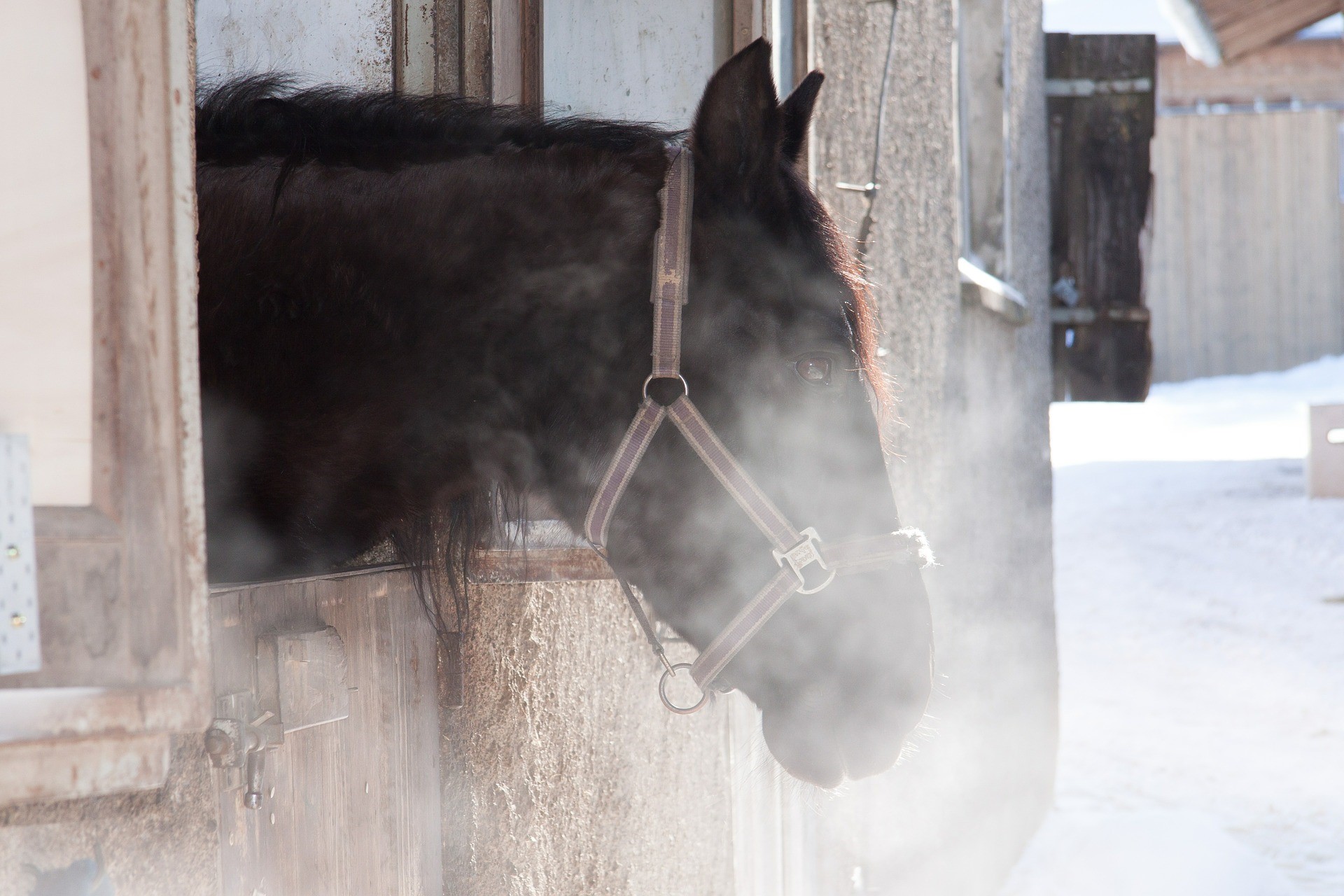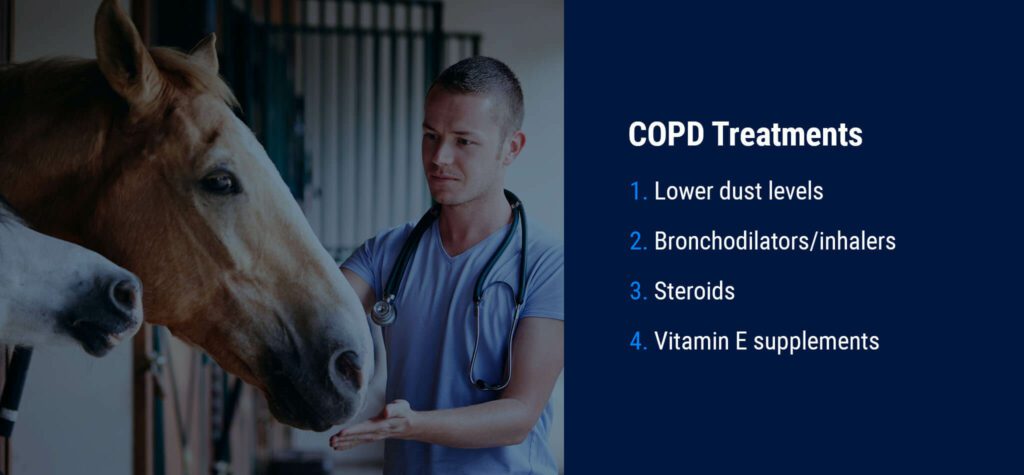COPD in Horses

Treating COPD in Horses
Chronic obstructive pulmonary disease (COPD) can affect just about every mammal, and horses are common sufferers. In equines, this condition is often called “heaves” or “recurrent airway obstruction.”
Like with humans, COPD causes horses to experience labored breathing and most often arises during the winter. Fortunately, there are a number of things you can do to help facilitate COPD treatment in horses and improve their overall quality of life.
Reducing Horse COPD Symptoms
The first step to reducing the symptoms of chronic obstructive pulmonary disease in equines is to lower the dust level in your horse’s living quarters. This can improve breathing as dust is a respiratory irritant that can build up in the lungs and block airways.
Keeping a barn free of dust is nearly impossible, so allowing the horse to be outdoors as much as possible with a free-standing shelter is ideal. Of course, they should be indoors if the weather is too hot or cold, as extreme temperatures can make the condition worse.
If being in the barn is necessary, replace hay and other bedding with a rubber mat to reduce dust levels. An industrial-size can of air cleaner may also lower air contaminants. Everything that can be done to provide the horse with fresh, clean air can make a world of a difference for their breathing.
Common COPD Treatment for Horses

When it comes to medically treating COPD in horses, the process is no different than treatment for humans. Your vet may prescribe a few drugs and encourage breathing treatments. Bronchodilators like the Ventipulmin device or inhalers can be helpful for long-term use. The key with any of these treatments is to be diligent in following the veterinarian’s orders to ensure optimal results.
Steroids for Treating COPD in Horses
If common treatments fail, steroid injections may be necessary to open up the horse’s airways. Steroids can yield unwanted side effects, so they are only used as a last resort. Plus, long-term use can lead to other life-shortening health conditions. However, if the COPD is left untreated, it can lead to the death of the horse even sooner. This is a choice that should be made under the advice of your veterinarian.
Horse Supplements Can Help With COPD
Horse supplements such as Vitamin E may also help with COPD. According to the American Thoracic Society, long-term use of Vitamin E may decrease COPD risk. This vitamin has also been shown to reduce the phlegm associated with COPD. Horses can get their daily requirement for Vitamin E through grazing fresh pastures. But a good nutritional supplement can help when fresh pastures aren’t available.
COPD is a very serious condition, but if managed and treated properly, the symptoms can be greatly reduced so that the horse can enjoy a high quality of life. As long as it is diagnosed early and treatment is begun in a short time, very little suffering will occur. Be vigilant in any changes that occur in the state of the horse and report them to your veterinarian to ensure treatment can be adjusted accordingly.
